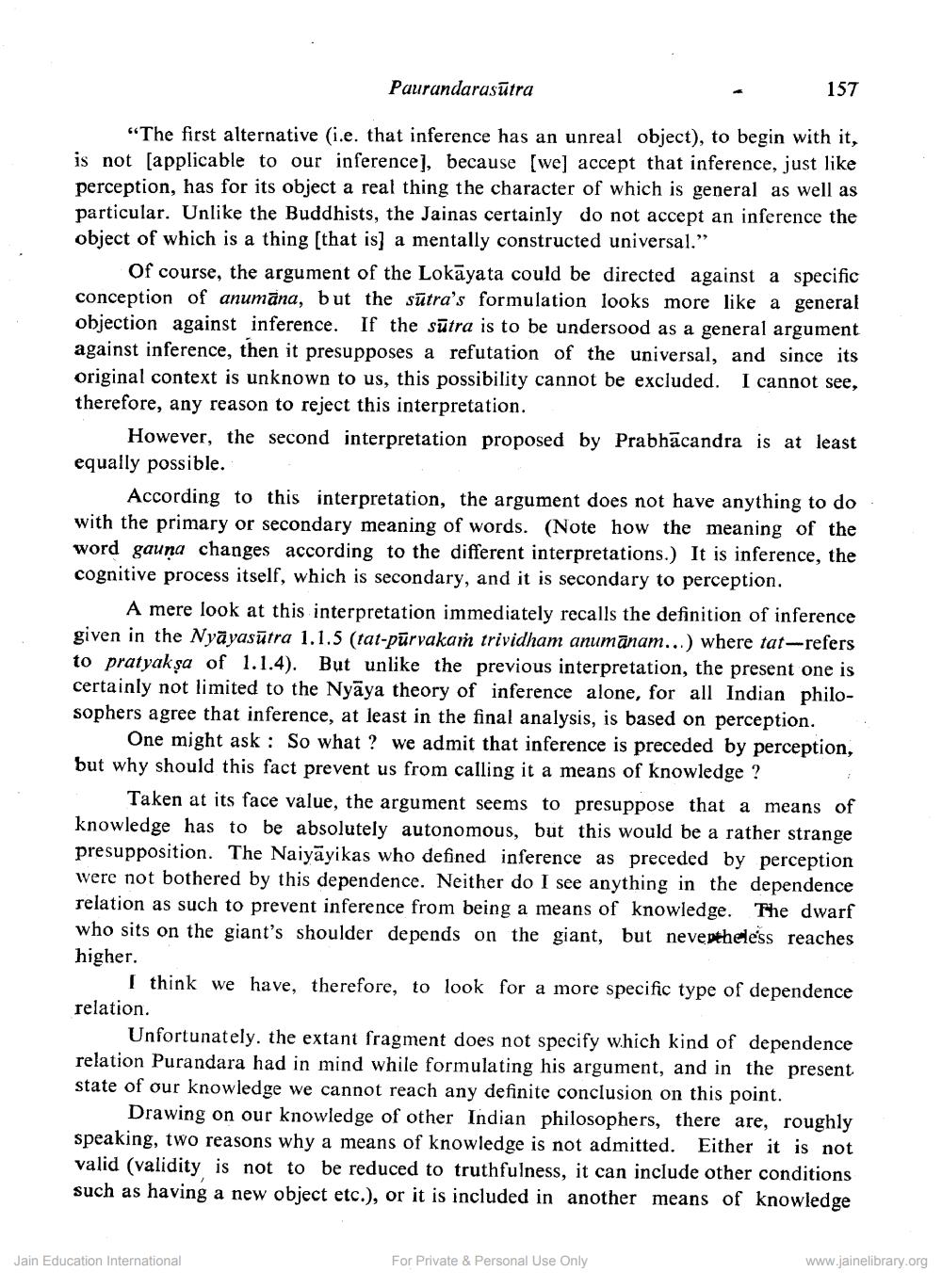Book Title: Paurandara Sutra Author(s): Eli Franco Publisher: Z_Aspect_of_Jainology_Part_3_Pundit_Dalsukh_Malvaniya_012017.pdf View full book textPage 4
________________ Paurandarasūtra 157 “The first alternative (i.e. that inference has an unreal object), to begin with it, is not applicable to our inference], because (we) accept that inference, just like perception, has for its object a real thing the character of which is general as well as particular. Unlike the Buddhists, the Jainas certainly do not accept an inference the object of which is a thing (that is) a mentally constructed universal." Of course, the argument of the Lokāyata could be directed against a specific conception of anumāna, but the sūtra's formulation looks more like a general objection against inference. If the sūtra is to be undersood as a general argument against inference, then it presupposes a refutation of the universal, and since its original context is unknown to us, this possibility cannot be excluded. I cannot see, therefore, any reason to reject this interpretation. However, the second interpretation proposed by Prabhācandra is at least equally possible. According to this interpretation, the argument does not have anything to do with the primary or secondary meaning of words. (Note how the meaning of the word gauna changes according to the different interpretations.) It is inference, the cognitive process itself, which is secondary, and it is secondary to perception. A mere look at this interpretation immediately recalls the definition of inference given in the Nyāyasūtra 1.1.5 (tat-pūrvakaṁ trividham anumānam...) where tat-refers to pratyak sa of 1.1.4). But unlike the previous interpretation, the present one is certainly not limited to the Nyāya theory of inference alone, for all Indian philosophers agree that inference, at least in the final analysis, is based on perception. One might ask : So what? we admit that inference is preceded by perception, but why should this fact prevent us from calling it a means of knowledge ? Taken at its face value, the argument seems to presuppose that a means of knowledge has to be absolutely autonomous, but this would be a rather strange presupposition. The Naiyāyikas who defined inference as preceded by perception were not bothered by this dependence. Neither do I see anything in the dependence relation as such to prevent inference from being a means of knowledge. The dwarf who sits on the giant's shoulder depends on the giant, but neveptheless reaches higher. I think we have, therefore, to look for a more specific type of dependence relation. Unfortunately, the extant fragment does not specify which kind of dependence relation Purandara had in mind while formulating his argument, and in the present state of our knowledge we cannot reach any definite conclusion on this point. Drawing on our knowledge of other Indian philosophers, there are, roughly speaking, two reasons why a means of knowledge is not admitted. Either it is not valid (validity is not to be reduced to truthfulness, it can include other conditions such as having a new object etc.), or it is included in another means of knowledge Jain Education International For Private & Personal Use Only www.jainelibrary.orgPage Navigation
1 2 3 4 5 6 7 8 9 10
